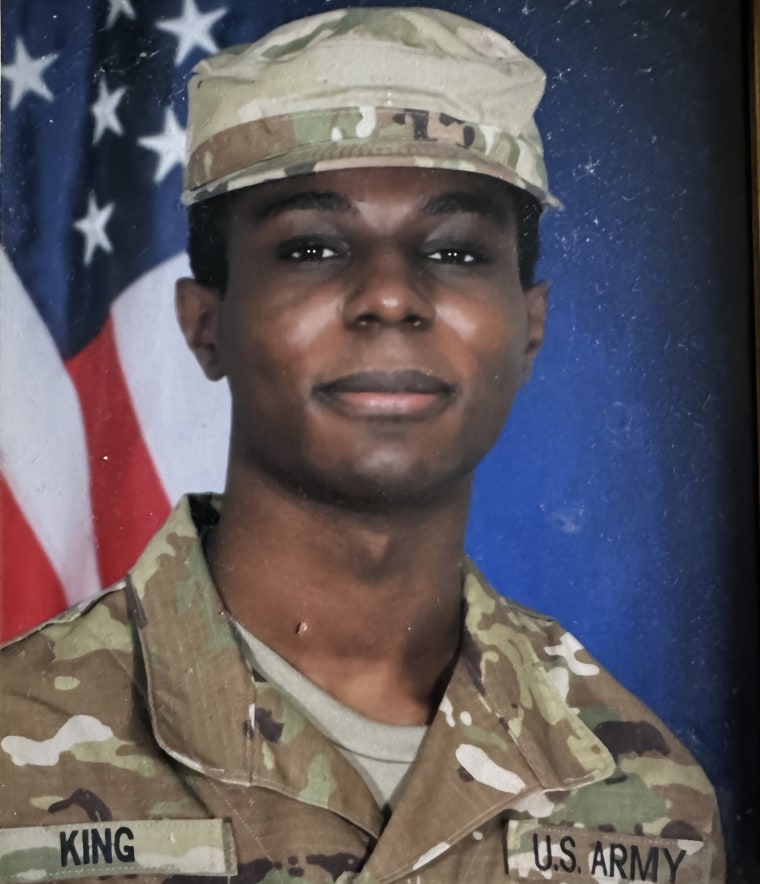There have been no new communications between the United Nations and North Korea since Pvt. Travis King first bolted across the border to the secretive state, U.S. officials said Monday, contradicting an earlier statement by the U.N.
“I saw reports about contact between the UN Command and North Korea,” State Department spokesperson Matt Miller told reporters on Monday. “It is my understanding that there has been no new communication since last week, communications that happened in the early days. I think the reports may have resulted from a misinterpretation of the UN command’s original statement.”
Pvt. 2nd Class Travis King, 23, was about to fly back to the United States from South Korea for possible disciplinary action after refusing to pay a fine for allegedly damaging public property. He slipped away from the airport in Seoul last Tuesday and managed to join a guided tour to the joint security area, a piece of land between the North and the South that’s managed by the U.N. From there, he sprinted across the border and appeared to be detained by North Korean guards.

Though there was no public word from the North Koreans about King, the U.N. force that manages negotiations between the two Koreas appeared to suggest it was in talks with the North about the runaway soldier.
“The primary concern for us is Pvt. King’s welfare,” said Lt. Gen. Andrew Harrison, a British army officer serving as deputy commander of United Nations Command, known as UNC.
Speaking at a media briefing in Seoul, he said the dialogue was happening through a mechanism set up following the armistice between the North and the South signed in 1953 to stop the fighting in the Korean War. Under the Korean War armistice, the U.N. multinational command and the North Korean military have a communication channel between the two forces.
“I can’t say anything that could prejudice that process,” Harrison said. “Much of this remains unknown.”
Harrison’s statements were interpreted by news organizations across the globe as meaning that the UN had started a larger dialogue about King’s status in North Korea. As new stories continued to publish, U.S. officials began to rebut the claim.
Miller said after the U.S. soldier ran into the North, there was an initial message from the U.N. command about King crossing over, and North Korea acknowledged receiving that message. But there has been no new communication about the soldier from the North Korean regime.
Three other U.S. officials earlier told NBC News there had been no new conversation about King’s status with the North.
One U.S. official said that “there is no dialogue. There’s no back and forth.”
Last week, Defense Department spokesperson Sabrina Singh said that the U.S. had not received a response when asking about King’s whereabouts and well-being. The U.S. does not have embassy-level relations with North Korea but sent the message through Swedish officials, its regular workaround.
The incident provides another point of tension between the West and North Korea, a repressive, nuclear-armed state that shares a complicated alliance and trading relationship with China.
North Korea says it fears Western-backed regime change and has threatened on several occasions to launch a nuclear strike to prevent this. The U.S. and its allies say the world cannot live with this threat and have vowed to denuclearize the Korean Peninsula.
On Saturday, the North fired several rounds of cruise missiles into the Yellow Sea, an apparent protest against the deployment of a U.S. nuclear-armed submarine to the South.
At an April meeting between President Joe Biden and South Korean President Yoon Suk Yeol, Biden warned “a nuclear attack by North Korea against the United States or its allies and partners is unacceptable, and will result in the end of whatever regime were to take such an action.”
Matt Bradley, Julia Jester and Phil McCausland contributed.






